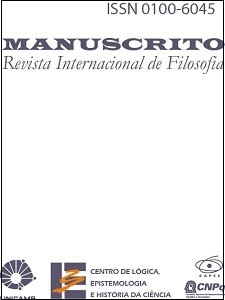Resumo
I want to argue that there is a task of ‘culture research’ other than what is practised in the empirical disciplines such as Social Anthropology or historical disciplines such as Literary Studies. Suppose ‘Cultures’ are looked upon as different legacies of ways of going about in the world resulting from the different pasts of different groups of people. Such ways can be either approached as a phenomena to be explained or as na embodiment of knowledge dispositions to be learnt. However, the predominant tool for approaching knowledge dispositions is to look at them as explicitly or implicitly held propositions. One consequence of this propensity is to construe understanding a culture as arriving at the beliefs held by the community characterised by that culture. I will show that there is a way of extending the Fregean distinction between ‘object’ and ‘concept’ in such a way as to make it serviceable to conceptualise non-propositional forms of knowledge, and consequently, a more adequate tool for identifying the objects of culture research.
Referências
BERG, E. & FUCHS, M. (Hrsg.) (1993). Kultur, soziale Praxis, Text (Frankfurt, Suhrkamp).
CASSIRER, E. (1992). An Essay on Man. An Introduction to a Philosophy of Human Culture (New Haven/London (1944)).
RAO, N. (1994). A Semiotic Reconstruction of Ryle’s Critique of Cartesianism (Berlin, De Gruyter).

